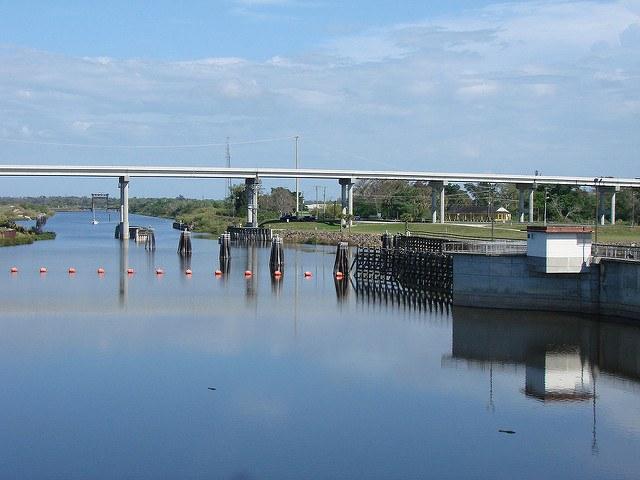
Florida residents will have more toxic chemicals in their drinking water thanks to a controversial ruling by the state’s Environmental Regulation Commission (ERC).
On July 26, the ERC approved a proposal by the Department of Environmental Protection for higher levels of toxic chemicals in the state’s rivers and estuaries in a 3 to 2 vote. The ERC approved the DEP’s proposal to increase the number of regulated chemicals that can be dumped into Florida’s waters from 54 to 92 chemicals. It also increased the allowed limits on over two dozen known carcinogens that are now regulated -- with a wide range spanning from levels of 20 percent to 1,100 percent higher than current limits.
The Florida Clean Water Network, which was against the proposal from the get-go, states that Floridians will get “weaker protection from almost two dozen carcinogens” now that the ERC has approved the proposal. “Essentially all of the chemicals would be allowed in our drinking water supplies, shellfishing areas, swimming and fishing waters at significantly higher amounts than EPA recommends,” the Network says.
“This is a wholesale denial in Florida of the value of our lives,” Linda Young, executive director of the Florida Clean Water Network, told the Tallahassee Democrat. “This is our governor — who is the person who’s driving this — saying Floridians’ lives don’t matter. What matters are our industries, our corporations, making more money. And they can do that by putting more pollution in our waters.”Rep. Gwen Graham (D-Fla.) is against the DEP’s proposal. In June, she wrote a letter to the DEP opposing the lower standards. “Lowering our water quality standards while our lakes, springs, rivers and coasts are turning green is insulting,” Graham said in a statement. “Allowing more cancer causing chemicals after the disaster in Flint is unconscionable.” Graham pointed out that Floridians traveled to Tallahassee from across the state to express their concerns about the proposal. “The Environmental Regulation Commission ignored them,” she said.
A number of environmentalists and conservationists wrote op-eds for Florida newspapers opposing the DEP proposal. Lisa Rinaman, the St. Johns Riverkeeper, is one of them. Eating fish is one of the “primary pathways to exposure to these dangerous chemicals,” Rinaman wrote in a op-ed for the Florida Times Union. Floridians are eating much more fish than was estimated when current criteria were developed. “The more fish we eat, the more chemicals we ingest,” Rinaman said.
Florida is already dealing with what Rinaman called “toxic green sludge,” in an op-ed for the Florida Times Union. Earlier this month, Florida Gov. Rick Scott declared a state of emergency for Martin, St. Lucie, Lee and Palm Beach counties due to the toxic algae bloom that started in Lake Okeechobee and spread to beaches, CNN reports. The algae is “triggered by by fertilizer sewage and manure pollution that the state has failed to properly regulate,” Earthjustice spokeswoman Alisa Coe told CNN.
Randall Denker, a former DEP enforcement attorney who has practiced environmental law in Florida for almost 40 years, wrote a letter to ERC commissioners expressing concern about the proposal. He pointed out in the letter that Florida is “already dealing with a number of troubling water issues,” and mentioned the toxic algae blooms. He also mentioned salt water intrusion in coastal drinking wells, surfactants in the water, xeno-estrogens that alter fish gender, and radioactive pollution from mining activities found in some waterbodies.
Tourism is a big industry in Florida, employing nearly 1.2 million people, Denker wrote in the letter. Last year, over 105 million tourists came to Florida, and 23 million of them visited beaches, spending $22 billion. “No one will pay to visit a place that is polluted or has the potential to make them sick,” Denker wrote.
Clearly, Floridians are not being protected by the ruling of the ERC. As Ray Bellamy, Tallahassee based physician and former member of the ERC, wrote in an op-ed for the Tallahassee Democrat: “The reduction of public health harm should be a prime goal of surface water discharge regulations.” Indeed, it should be a prime goal. Something is dreadfully wrong when reducing health hazards is not the priority of a governmental commission.
Image credit: Flickr/airwaves1

Gina-Marie is a freelance writer and journalist armed with a degree in journalism, and a passion for social justice, including the environment and sustainability. She writes for various websites, and has made the 75+ Environmentalists to Follow list by Mashable.com.














